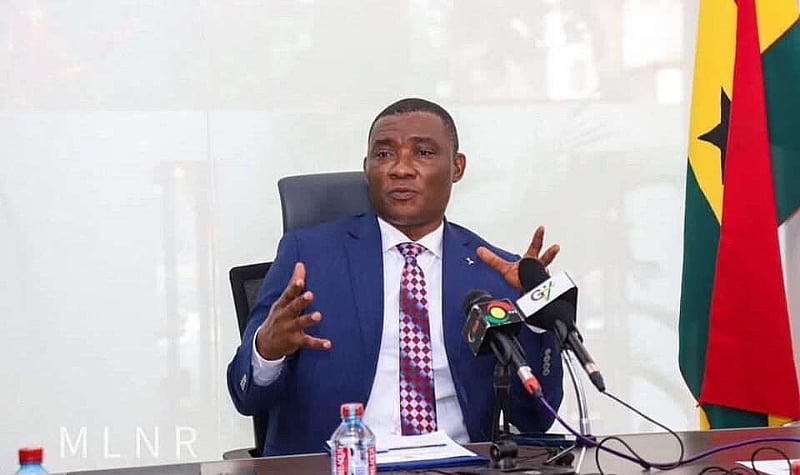In a recent statement, Deputy Minister for Lands and Natural Resources, George Mireku Duker, emphasized the commitment of the government led by Dr. Mahamudu Bawumia to address the pressing issue of pollution in the Ghanaian water bodies, should he win the presidential election on December 7, 2024. The rising concerns regarding illegal mining, popularly known as galamsey, have led to drastic environmental degradation, affecting not only the landscape but also the water resources essential for the populace. The alarming consequences of these illegal mining activities, specifically their deleterious impact on aquatic life and public health, have galvanized numerous pressure groups and community members to demand urgent governmental interventions. Duker’s remarks come in the context of a broader political discourse, with various factions mobilizing to hold the government accountable for the ecological crisis.
During his address, Duker expressed skepticism about the motives behind the ongoing public pressure on the government, suggesting that some calls may be driven by political agendas rather than genuine concern for the environmental state. While acknowledging the anger among citizens regarding the government’s perceived inaction against illegal mining, he portrayed the NPP government’s efforts as sincere and focused on long-term restoration strategies. He underscored that the upcoming elections have led to an influx of political propaganda aimed at undermining the current government’s initiatives. There is a palpable sense of urgency within the NPP to re-engage the electorate and dispel any criticisms related to environmental management and governance.
Duker pledged that if the NPP retains power after the elections, the administration would undertake a comprehensive cleanup initiative targeting the contaminated water bodies across the nation, with an ambitious goal of achieving significant results within three months. This promise aligns with the broader narrative that the government recognizes the enormity of the challenges posed by galamsey and is planning a decisive response that includes collaboration with small-scale miners and other stakeholders. The Deputy Minister’s statements also reflect an understanding of the delicate balance between economic interests and environmental sustainability, as many in the small-scale mining sector have felt disenfranchised by past regulatory measures.
While Duker’s remarks signal a hopeful outlook for environmental restoration, they also hint at the overarching tensions between small-scale miners and regulatory authorities. These miners, frequently caught in the crossfire of environmental laws and economic survival, have often been wary of governmental promises that can sometimes lead to further restrictions. The NPP is keen to capitalize on small-scale miners’ support to solidify its electoral viability and leverage their local influence to facilitate smoother implementation of environmental reforms. The upcoming elections serve as a critical juncture for both the government and mining communities, where mutual understanding and engagement are essential for creating viable paths forward.
In tandem with the Deputy Minister’s assurances, President Akufo-Addo has taken steps to bolster enforcement measures against illegal mining, including the directive to enhance Operation Halt, which seeks to address unlawful mining activities in water bodies and forest reserves. By deploying additional military personnel, the government aims to strengthen its operational capabilities, thereby signaling a zero-tolerance approach to illegal activities that threaten natural resources. This directive illustrates a recognition of the need for immediate action and a resolve to protect the environment against illegal exploitation while attempting to regain public trust.
As Ghana approaches the December elections, the intersection of political accountability and environmental stewardship remains a focal topic among voters. The commitments made by government representatives, including the pledges to restore polluted water bodies, resonate with a populace that seeks both environmental integrity and sustainable economic opportunities. The effectiveness of these proposals will ultimately depend on tangible outcomes in the months following the elections, as citizens remain vigilant and engaged, ready to scrutinize the effectiveness of elected officials in delivering on promises made amidst the backdrop of environmental challenges intensified by illegal mining activities.














